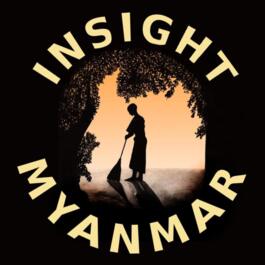
Episode #290: Nyo Mar's story is one of resilience, perseverance, and a relentless fight against discrimination in Myanmar. Born into a Muslim minority family in a remote area of Myanmar, her early life was shaped by the harsh realities of being a part of a marginalized community. Her father, a government health supervisor, faced derogatory slurs and institutional discrimination, which deeply angered Nyo Mar. This experience, along with witnessing her father's humiliation, ignited a strong desire to understand the roots of discrimination against her people. As she navigated through her schooling and later university, Nyo Mar faced significant barriers, such as discrimination in the citizenship process and being denied opportunities simply because of her Muslim background. Her experience as a university student in Yangon was marred by further prejudice, including a professor publicly humiliating her. These instances of exclusion were compounded by violent religious conflicts in her hometown, where Buddhist extremists targeted Muslim communities, burning homes and killing people. Despite these challenges, Nyo Mar persisted in her education and professional aspirations, facing both institutional and societal rejection. Even as she entered the field of public health and social activism, including leading HIV/AIDS awareness programs, she encountered barriers such as military surveillance and harassment. This persistent discrimination, both personal and professional, prompted Nyo Mar to seek change, and she went on to found the Feminist Minority Women's Institute, focusing on empowering minority women to participate in political decision-making. Through her ongoing studies and advocacy, including her work on gender and sexuality in Myanmar’s political framework, Nyo Mar continues to fight for a more inclusive future. “We have to understand each other and accept each other and respect each other. Human dignity is the most important thing.” Her story is not just her own; it is the story of many in Myanmar—of those who dream of a future where they are seen, heard, and accepted as equals.
From "Insight Myanmar"


Comments
Add comment Feedback